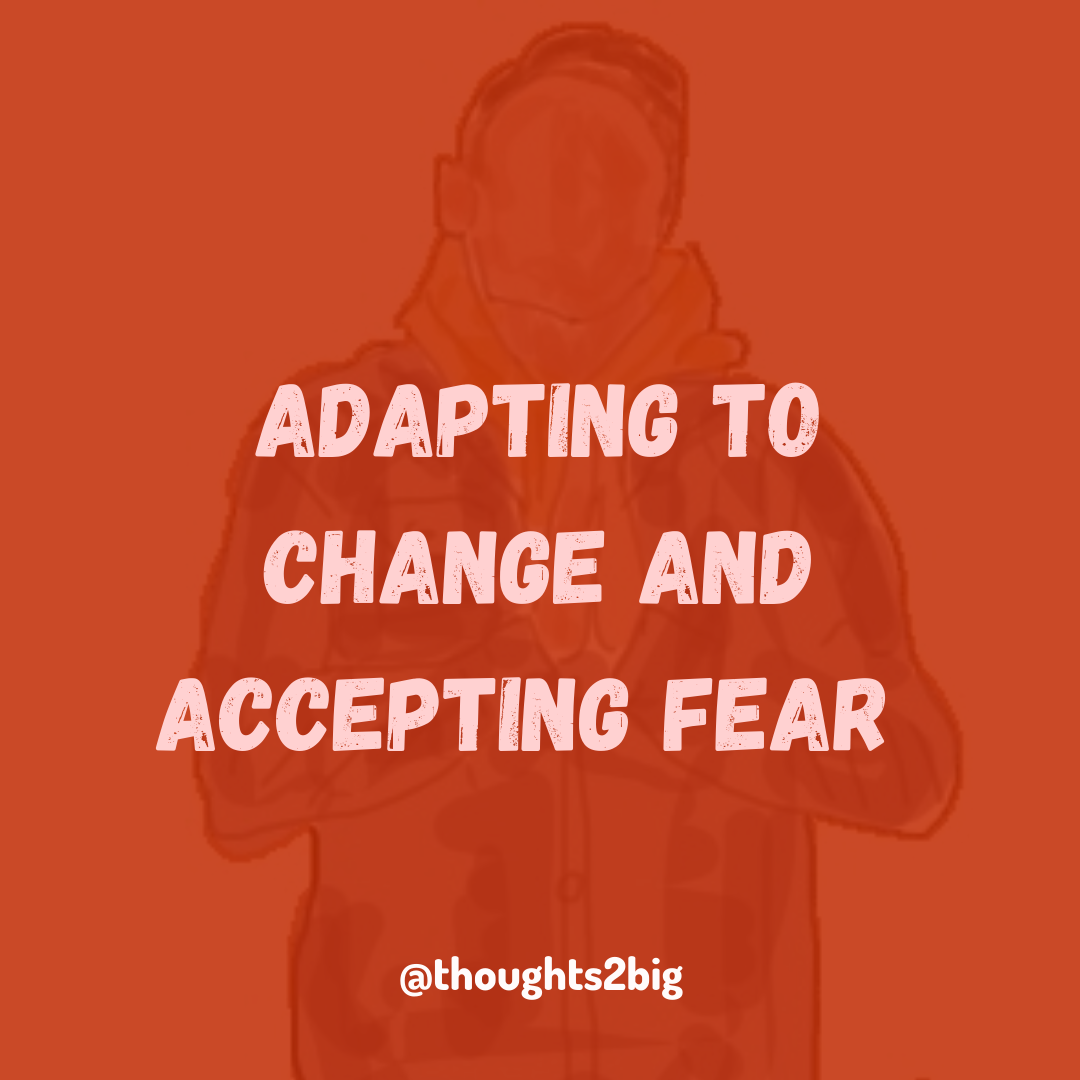Adapting to Change and Accepting Fear

Change is in evitable isn’t it? Everything is subject to it. Things decay and evolve and morph and transform over time. There is no escaping change, just as there is no escaping death. And yet, as human beings, we tend to fear both of these things the most.
Change makes us uncomfortable. It makes us question our ability to make decisions. It makes us question our choices. When change happens, we enter survival mode. We begin to catastrophise and panic and fear the worst. We do this because our sense of familiarity is thrown out the window, and we don’t like that.
Humans are creatures of habit, ritual and routine. We are satisfied when things are predictable. Routines mediate our mood and mental wellbeing (Hence why mental health routines work!) So when something significant in our lives changes, we become distressed because things are no longer predictable and safe, and comforting. We become uncomfortable in times of great change.
For example, recently I quit full time employment and am imminently leaving the country to go travelling on my own. This is something I have wanted to do for quite some time but I was afraid. I was afraid of leaving the comfort of a steady income, and familiar life. But I eventually pulled the trigger and turned my life upside-down. And now, despite doing what I have always wanted to do, I feel uncomfortable and unsure and scared. Dramatic change has happened and so my mind is responding to it as it has been trained to – with fear and anxiety about the unknown road ahead.
A younger me would be panicking now due to this reaction. In the past I may have begun to second guess myself and maybe even pulled out of the decision entirely. But now I think I understand myself a bit better and I think I know why my mind freaks out during times of change.
Here’s an exercise to showcase what I mean: Fold your arms. Got ‘em folded? Okay now put whichever arm is on bottom on top and fold them this way. I bet it feels uncomfortable. Like your arms feel out of place and weird. This is cognitive dissonance in action.
Our minds don’t like change because it makes them work harder to make sense of what’s going on. Which means the more uncomfortable you make your brain, the more it has to work, and the quicker it has to adapt to said change.
In other words change instils growth because it takes your mind out of autopilot. When you change things up, and come out of that comfort zone you crave, you’ll be kept on your toes, Your mind and sense of self will change with it.
We like the comfort zone because it does the exact opposite of change. It keeps us safe and poses no challenge. We like this because it means we don’t have to put in any effort. But it is not the place to exist if you wish to grow and develop and become a better version of yourself.
This is why I know I am moving in the right direction when I feel uncomfortable and anxious about a new experience. This discomfort means I have moved out of my comfort zone and into the unknown.
And it is in the unknown where we find our strength, and true sense of self. It is not to be found where you feel comfortable.